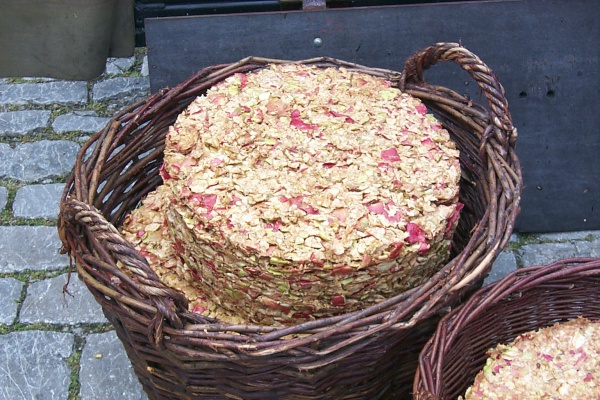Facts About Press cake
A press cake, often referred to as an oil cake, is the solid residue that remains after extracting the liquid from certain foods. These remnants are typically repurposed, frequently serving as animal feed. Press cakes can be derived from a wide range of sources: olives (used for olive oil), peanuts (for peanut oil), coconut flesh (for coconut cream and milk), grapes (for wine), apples (for cider), and soybeans (for soy milk or oil). Other seeds, such as flax, cottonseed, and sunflower seeds, also produce press cakes.
However, not all press cakes are safe for consumption. For instance, cottonseed press cakes contain a toxic compound called gossypol, which must be removed before they can be safely used. In cases where press cakes are inedible, they are often converted into fertilizer.
Interestingly, press cakes have some unique applications beyond animal feed. In Nepal, the press cake from Persian walnuts is not only used in cooking but also as a remedy for headaches—it is applied directly to the forehead. In some regions, press cakes are utilized as fuel for boilers because they are efficient combustion materials, contributing to reduced energy costs.

 China
China